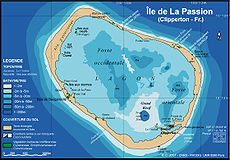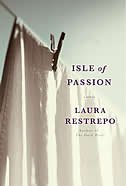 "[...] the rationale for reading books in English class is not limited to the important goal of promoting strong reading skills. For generations reading literature has also been the way that American students have learned their country's history and world history, how they learned about morality (by reading about virtuous and not-so-virtuous people), how they learned about good and bad leaders, and how they learned about the dangers of pride, greed, and other human foibles.
"[...] the rationale for reading books in English class is not limited to the important goal of promoting strong reading skills. For generations reading literature has also been the way that American students have learned their country's history and world history, how they learned about morality (by reading about virtuous and not-so-virtuous people), how they learned about good and bad leaders, and how they learned about the dangers of pride, greed, and other human foibles.Reading literature also teaches, among other things, empathy: it puts us in another person's shoes [...] And certainly society could use a bit more empathy these days. Literature enlarges our lives, it gets us out of ourselves, and at the same time, it helps us see ourselves more clearly. In short, not only does literature make us better readers. It also makes us better citizens and future employees, and most importantly, it helps us live our lives." SOURCE
 "Do not trust the dominant ideologies and the princes. Stay away from the princes. Do not contaminate your language with language of ideology. Believe that you are stronger than generals, but do not measure against them. Do not believe that you are weaker than generals, but do not measure against them. Do not believe in utopian projects, except in those that you create yourself. Be equally proud in front of the princes and the people. Have a clear conscience of the privileges a writing profession bestows on you. Do not confuse the curse of your choice with that of class oppression. Do not be swept by the tides of history, and do not believe in the metaphor of a train of history. Do not jump on the train of history, it's just a silly metaphor. Always remember that he who reaches the target misses the point. Do not write reports from countries that you've visited as a tourist. Do not write reports at all, you're not a journalist. Do not believe statistics, numbers, and public statements; the reality is that which cannot be seen with the naked eye. Do not visit factories, collective farms, or businesses; progress is that which cannot be seen with the naked eye. Do not get involved in economy, sociology, or psychoanalysis. Do not occupy your mind with Eastern philosophy, or teachings such as Buddhism, or Zen, you have a smarter job. Be aware that imagination is a sister of lies, so it is dangerous. Do not get involved with anyone, a writer is alone."
"Do not trust the dominant ideologies and the princes. Stay away from the princes. Do not contaminate your language with language of ideology. Believe that you are stronger than generals, but do not measure against them. Do not believe that you are weaker than generals, but do not measure against them. Do not believe in utopian projects, except in those that you create yourself. Be equally proud in front of the princes and the people. Have a clear conscience of the privileges a writing profession bestows on you. Do not confuse the curse of your choice with that of class oppression. Do not be swept by the tides of history, and do not believe in the metaphor of a train of history. Do not jump on the train of history, it's just a silly metaphor. Always remember that he who reaches the target misses the point. Do not write reports from countries that you've visited as a tourist. Do not write reports at all, you're not a journalist. Do not believe statistics, numbers, and public statements; the reality is that which cannot be seen with the naked eye. Do not visit factories, collective farms, or businesses; progress is that which cannot be seen with the naked eye. Do not get involved in economy, sociology, or psychoanalysis. Do not occupy your mind with Eastern philosophy, or teachings such as Buddhism, or Zen, you have a smarter job. Be aware that imagination is a sister of lies, so it is dangerous. Do not get involved with anyone, a writer is alone." I took a break from my passion, Latin American literature, and read several works by Erich Maria Remarque, the non-war ones. I love those of his novels that deal with war and the consequences, all of them. They are enormously enriching, and more powerful deterrent than any that preaches against militarism and warmonging. I don't exaggerate when I say that reading his novels in my early teens was a contributing factor not to join the military, making me the first male in my family not to put on a uniform. I'm glad for these novels' existence, and wish that Remarque wrote more, though I know from his own comments that pressure from publishers forced him to abandon the subject.
I took a break from my passion, Latin American literature, and read several works by Erich Maria Remarque, the non-war ones. I love those of his novels that deal with war and the consequences, all of them. They are enormously enriching, and more powerful deterrent than any that preaches against militarism and warmonging. I don't exaggerate when I say that reading his novels in my early teens was a contributing factor not to join the military, making me the first male in my family not to put on a uniform. I'm glad for these novels' existence, and wish that Remarque wrote more, though I know from his own comments that pressure from publishers forced him to abandon the subject. 

 "Clipperton's name comes from John Clipperton, an English pirate and privateer who fought the Spanish during the early 18th century, and is said to have passed by the island. Some others say he used the island as a hidden base for his raids on shipping [...]"
"Clipperton's name comes from John Clipperton, an English pirate and privateer who fought the Spanish during the early 18th century, and is said to have passed by the island. Some others say he used the island as a hidden base for his raids on shipping [...]" "Restrepo is one of the many contemporary Latin American authors seeking new routes for political writing. They reject both overt realism and phantasmagoria. Instead, their novels wander down less defined, more suggestive tracks: mysticism, irony, meta-literary games, and dreamlike, melancholy sequences are all recurring elements."
"Restrepo is one of the many contemporary Latin American authors seeking new routes for political writing. They reject both overt realism and phantasmagoria. Instead, their novels wander down less defined, more suggestive tracks: mysticism, irony, meta-literary games, and dreamlike, melancholy sequences are all recurring elements." "Peruvian writer Mario Vargas Llosa said in an interview published over the weekend that he will not change his political convictions for the sake of winning literary prizes [...]
"Peruvian writer Mario Vargas Llosa said in an interview published over the weekend that he will not change his political convictions for the sake of winning literary prizes [...]